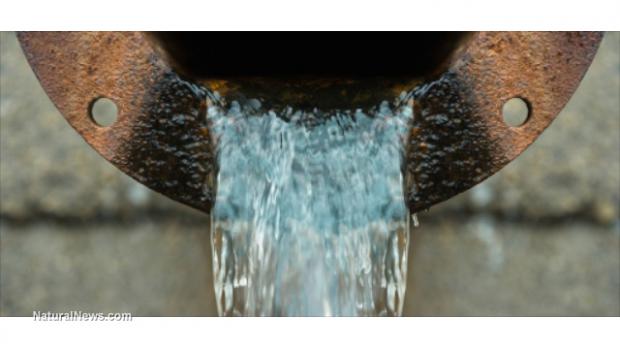
Breaking News
 EXCLUSIVE: "The HUGE Elephant In The Room Is Actually What Jeffrey Epstein Was Best At..."
EXCLUSIVE: "The HUGE Elephant In The Room Is Actually What Jeffrey Epstein Was Best At..."
 EXCLUSIVE INTERVIEW: Republican Candidate For Texas Governor "Doc" Pete Chambers Joins...
EXCLUSIVE INTERVIEW: Republican Candidate For Texas Governor "Doc" Pete Chambers Joins...
 Epstein Files Trigger Political Fallout Across Europe
Epstein Files Trigger Political Fallout Across Europe
 Conjoined twin 'influencers' who have gained more than 280,000 followers with their intimate
Conjoined twin 'influencers' who have gained more than 280,000 followers with their intimate
Top Tech News
 How underwater 3D printing could soon transform maritime construction
How underwater 3D printing could soon transform maritime construction
 Smart soldering iron packs a camera to show you what you're doing
Smart soldering iron packs a camera to show you what you're doing
 Look, no hands: Flying umbrella follows user through the rain
Look, no hands: Flying umbrella follows user through the rain
 Critical Linux Warning: 800,000 Devices Are EXPOSED
Critical Linux Warning: 800,000 Devices Are EXPOSED
 'Brave New World': IVF Company's Eugenics Tool Lets Couples Pick 'Best' Baby, Di
'Brave New World': IVF Company's Eugenics Tool Lets Couples Pick 'Best' Baby, Di
 The smartphone just fired a warning shot at the camera industry.
The smartphone just fired a warning shot at the camera industry.
 A revolutionary breakthrough in dental science is changing how we fight tooth decay
A revolutionary breakthrough in dental science is changing how we fight tooth decay
 Docan Energy "Panda": 32kWh for $2,530!
Docan Energy "Panda": 32kWh for $2,530!
 Rugged phone with multi-day battery life doubles as a 1080p projector
Rugged phone with multi-day battery life doubles as a 1080p projector
 4 Sisters Invent Electric Tractor with Mom and Dad and it's Selling in 5 Countries
4 Sisters Invent Electric Tractor with Mom and Dad and it's Selling in 5 Countries
Removing heavy metals from water: Activated charcoal from palm kernel cake is a low cost biosorbent

(Natural News) Contaminated water contains all sorts of harmful toxins that can result in dangerous diseases in humans. This has led scientists to devise various ways to decontaminate water —-so much so that decontamination has become an industry of its own.
One of the primary objectives of decontamination is to remove heavy metals in water, which can cause a number of adverse effects such as diabetes. Certain heavy metals — cadmium, in particular — can carry the most risk. Now, a team of researchers has come up with a novel approach to remove cadmium from water: by using activated carbon from palm kernel cake.
Palm kernel cake has already been shown to be versatile and suitable for many different uses in a number of previous studies. The latest study on it, published in the IOSR Journal of Environmental Science, Toxicology and Food Technology, detailed how it can be used as a low-cost environmentally friendly method of clearing the water of the heavy metal cadmium.
The researchers noted in their study that heavy metals are a threat to human health, as well as the ecosystem. As such, they set out to identify a viable "green technology" option that can be used as a solution for their removal. They settled on a concept called biosorption, which they described as an "emerging technology" that uses naturally occurring waste materials to efficiently isolate heavy metals from water. After identifying a known natural method that can take away heavy metal from water, the researchers then needed to find a material that was both locally available as well as cheap and abundant. For this, they settled on palm kernel cake to be used in their experiments.
After performing their experiments, the researchers concluded that activated carbon, which was prepared using palm kernel cake, could serve as an effective solution for the removal of cadmium from an "aqueous solution." They found this to be true in multiple batches of experiments done at room temperature. And they were also able to identify the critical parameters that were able to affect the effectiveness of their solution.
According to the researchers, the factors that affected the effectiveness of using activated carbon for heavy metal removal include pH levels, contact time, initial metal ion concentration, and the biosorbent dose on the biosorption of cadmium. They learned that maximum biosorption occurred at a pH level of 5 and that it stood at 10.28 percent. Regarding contact time, they noted that the highest absorption rates occurred after the first 30 minutes, then the solution reached biosorption equilibrium at around 50 minutes.
What these results mean is simply that there is now a low-cost, environmentally friendly way of removing harmful cadmium from water that only takes a short amount of time. Activated carbon, therefore, is a useful and economic biosorbent that could be of much use in future research studies. The researchers themselves state rather plainly: "The results indicated that activated palm kernel cake could be developed as a potential material to be used in green water treatment devices for removal of metal ions."



